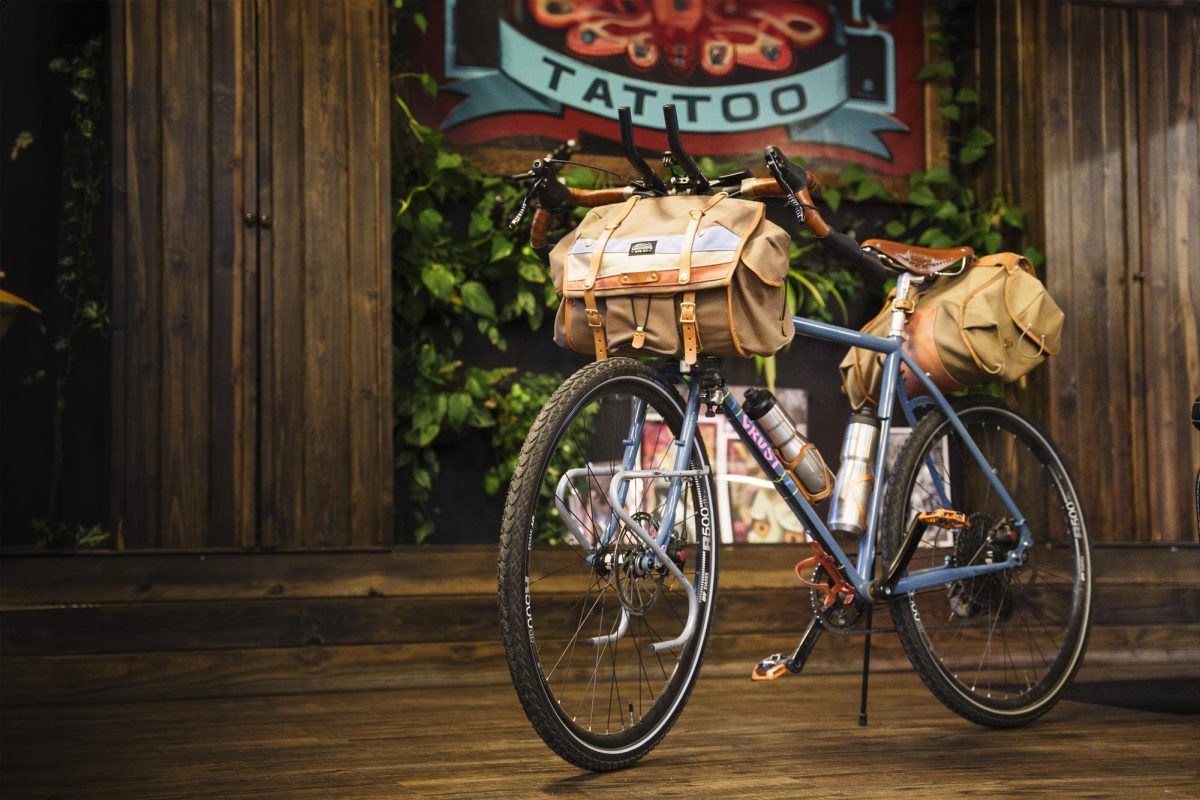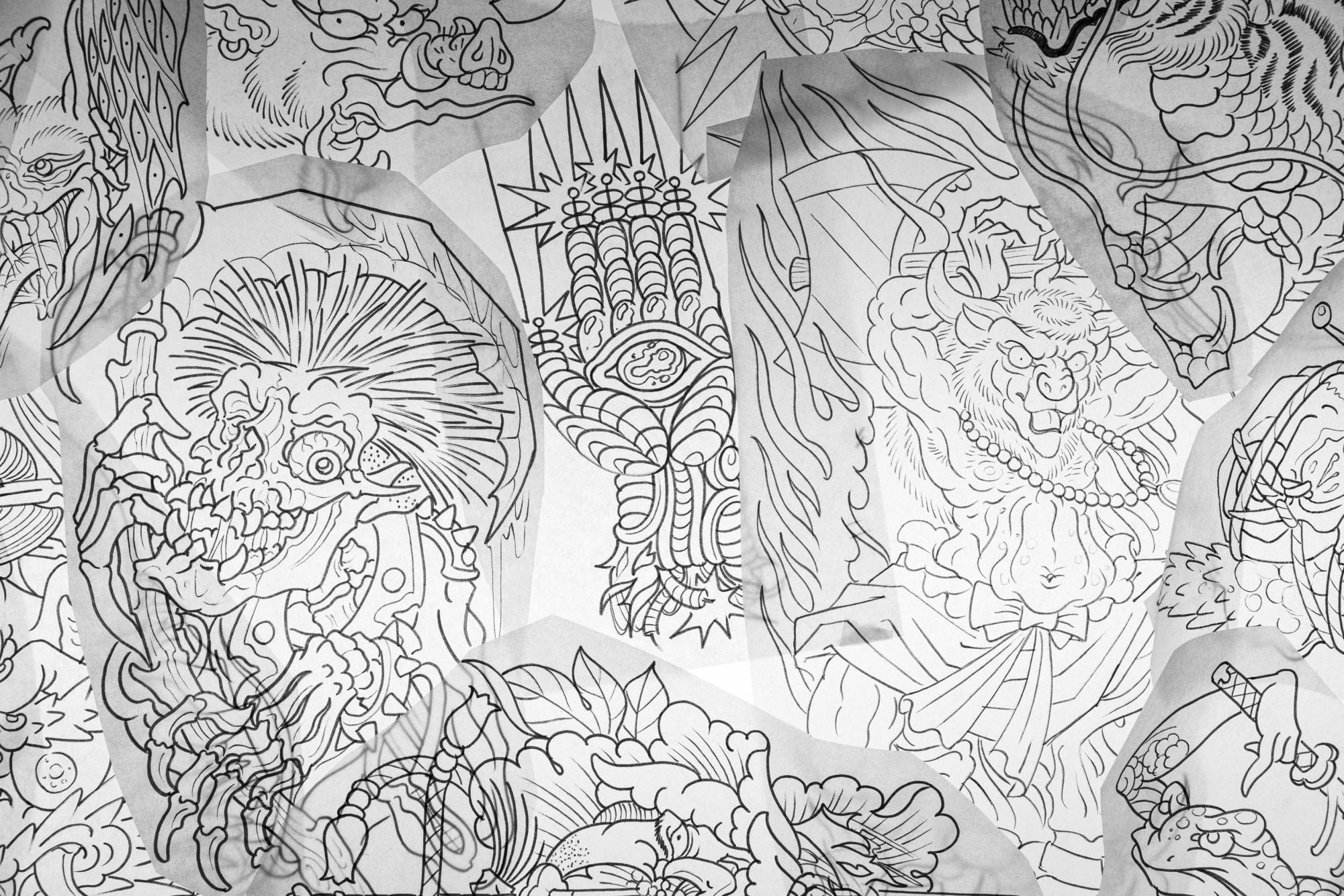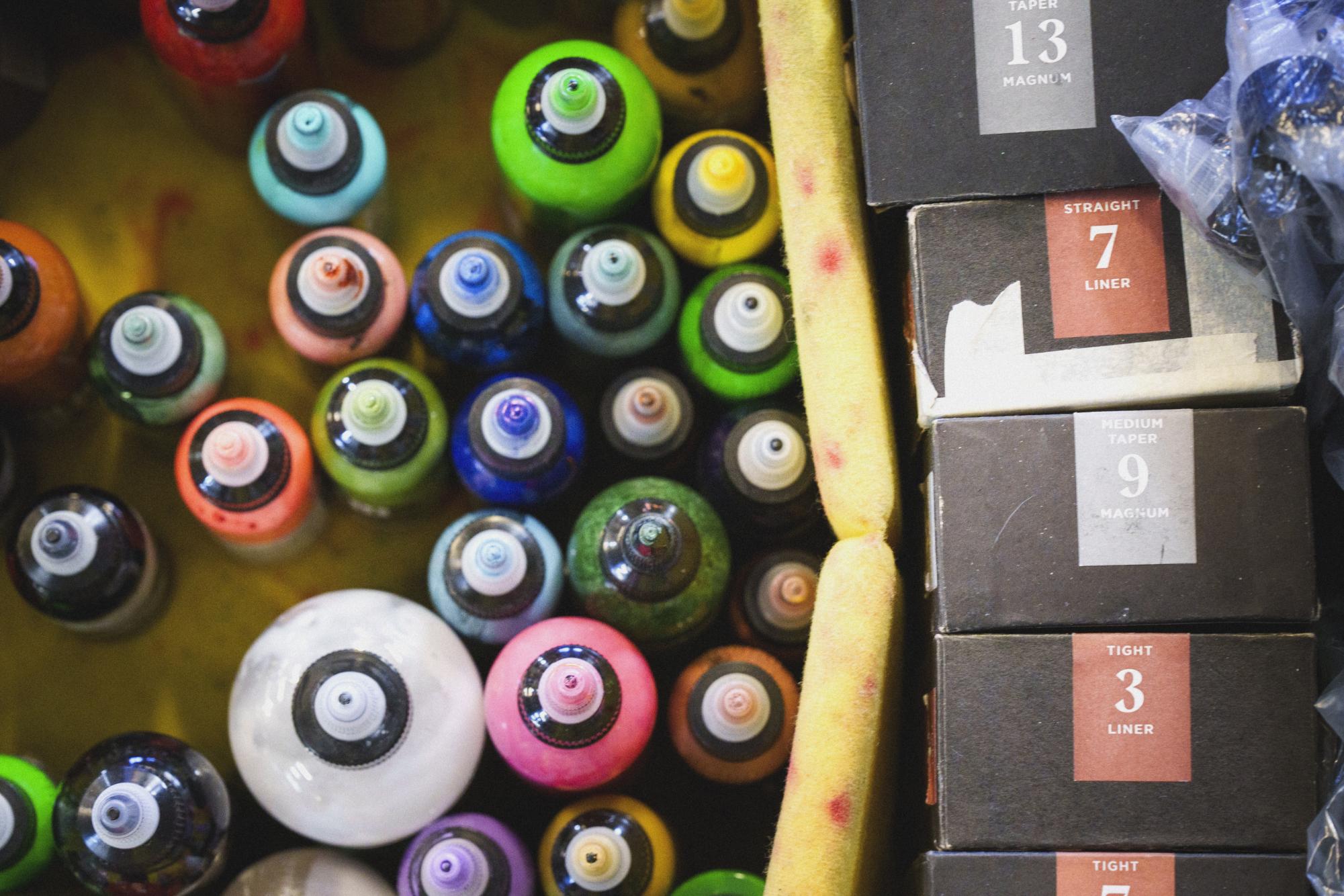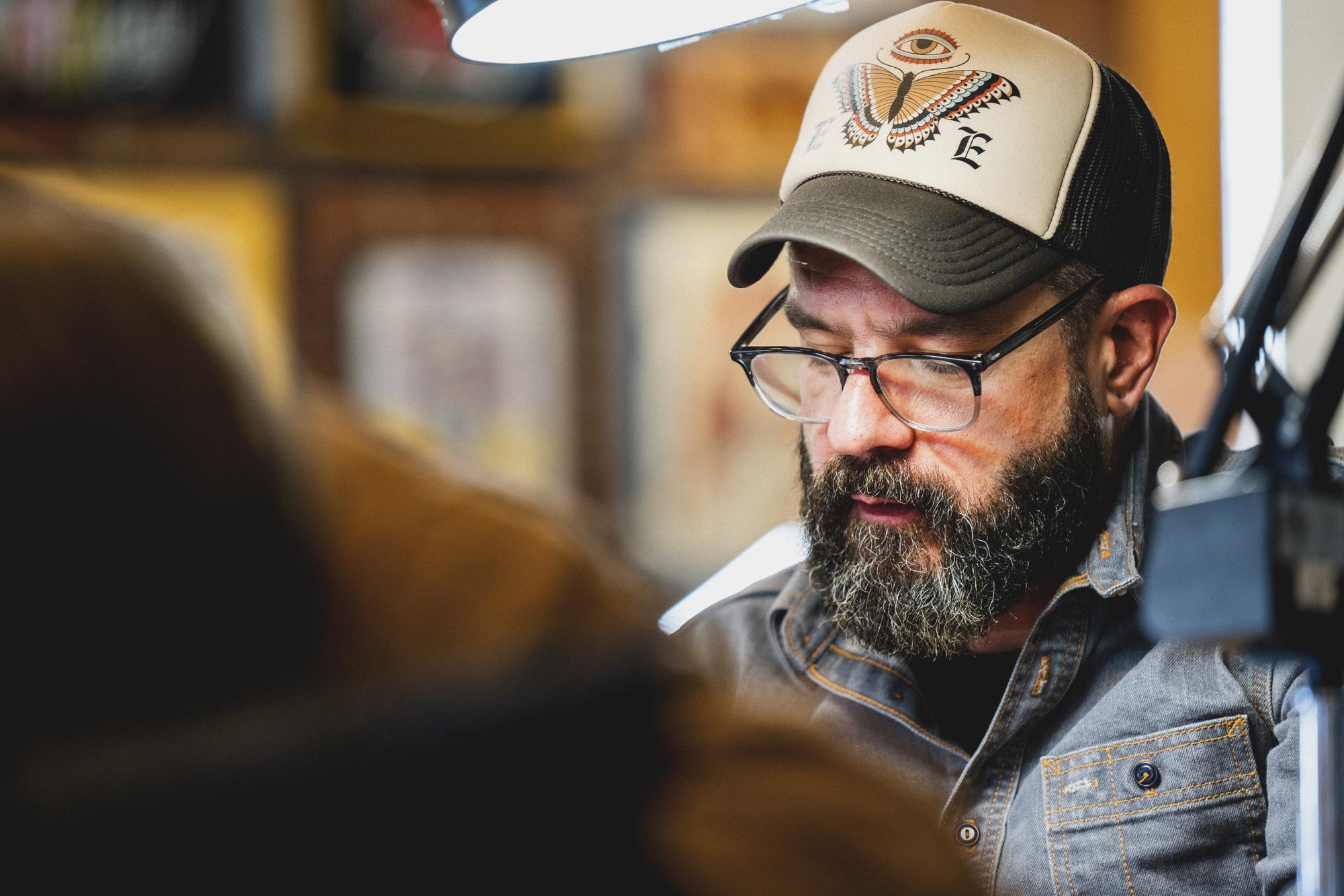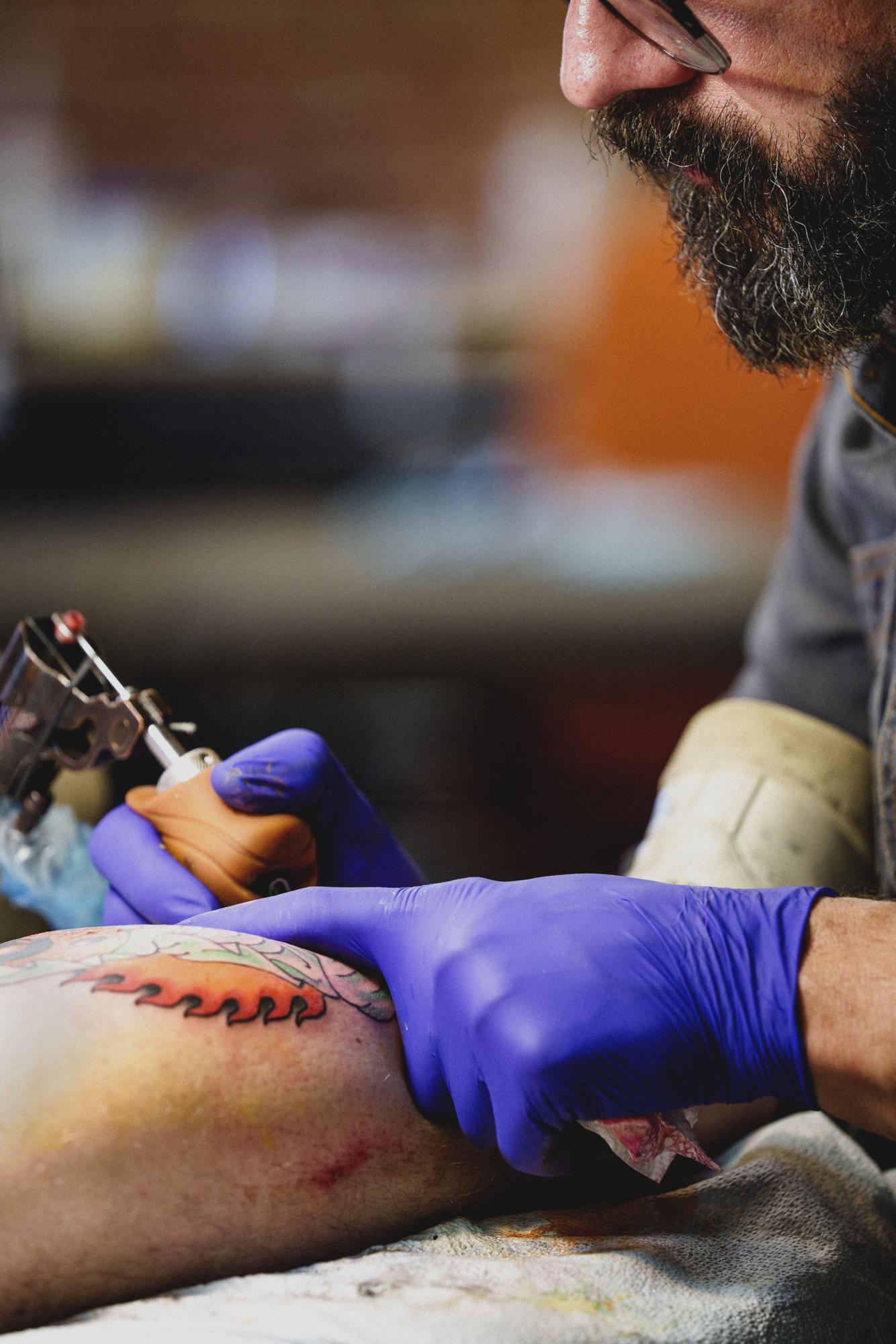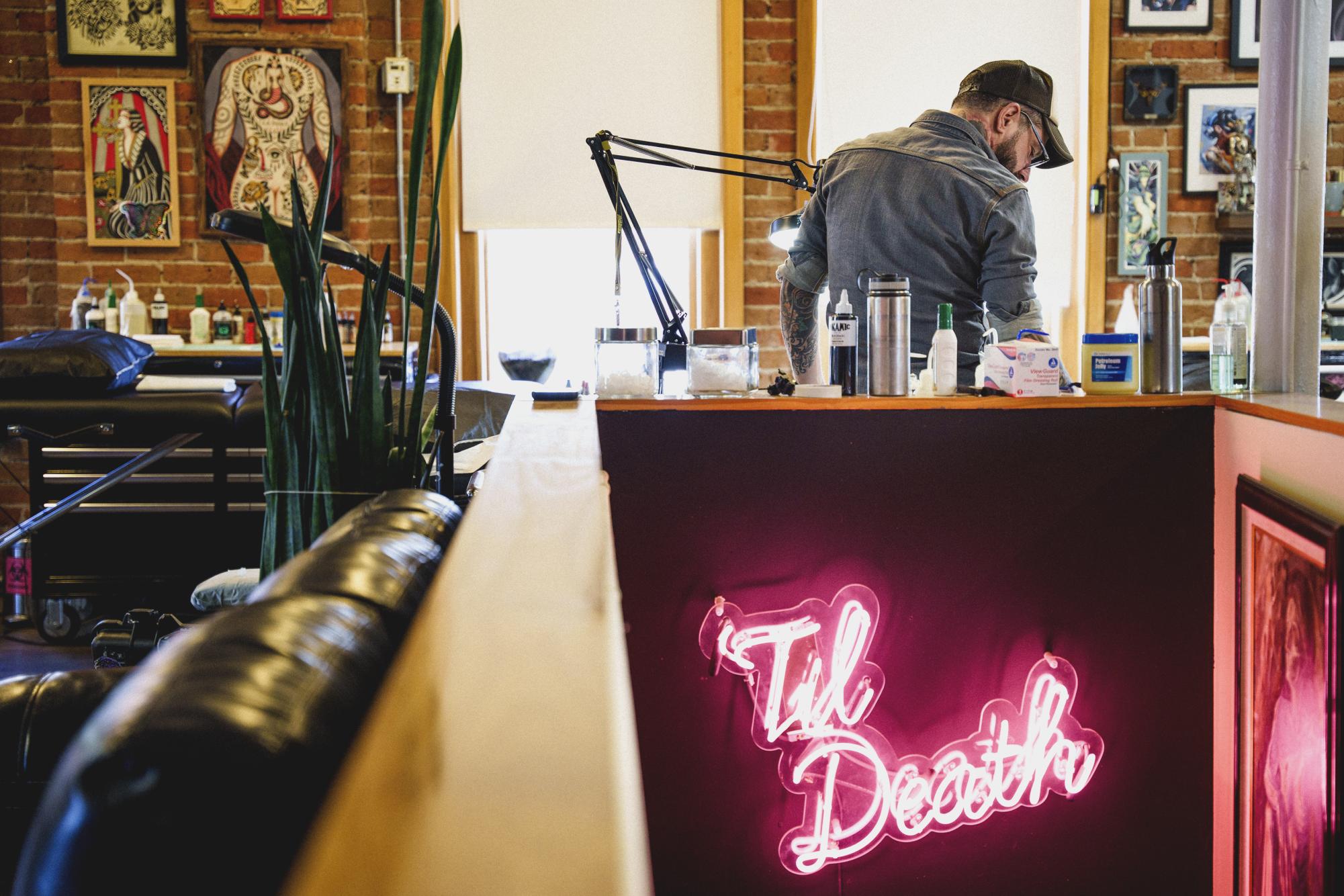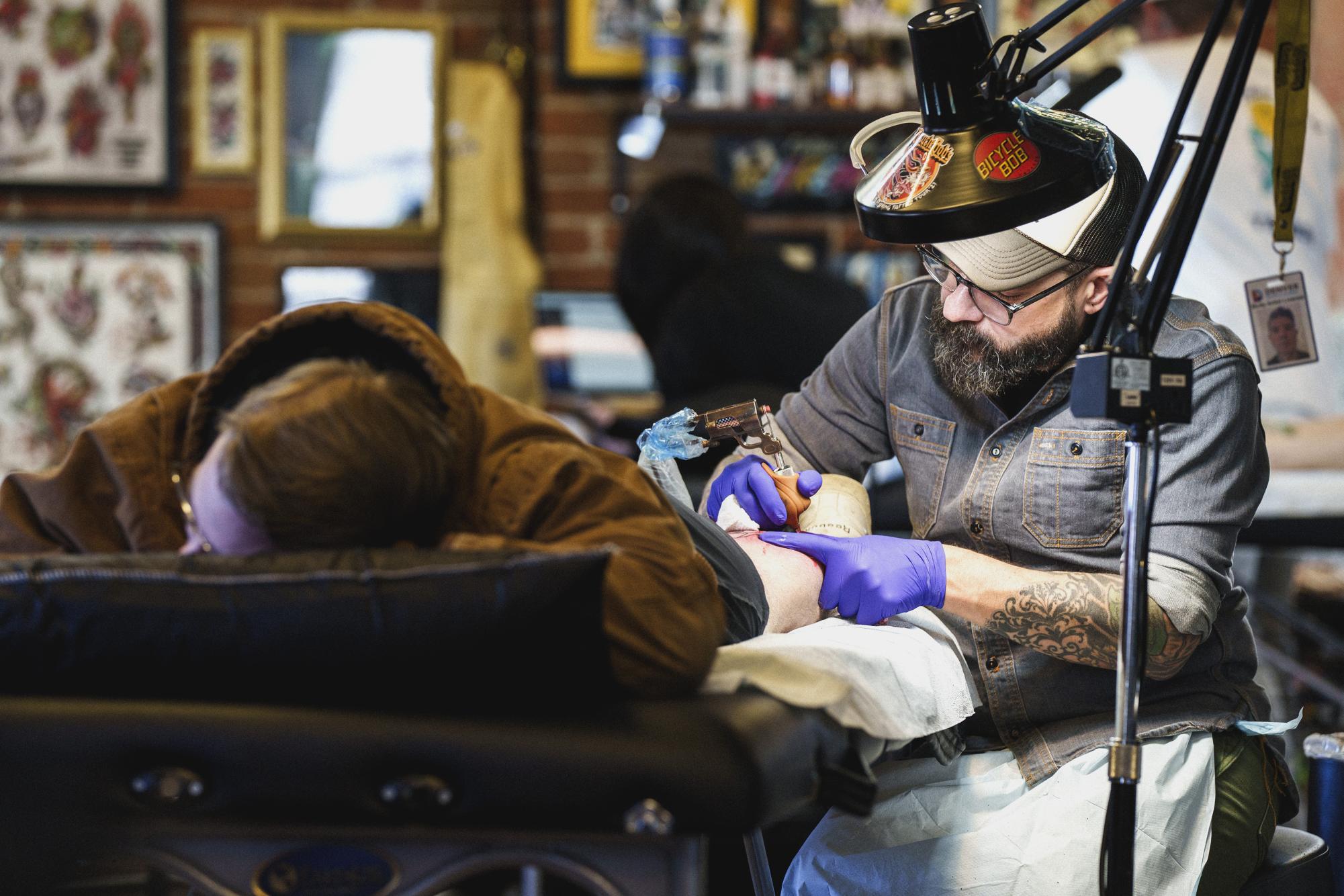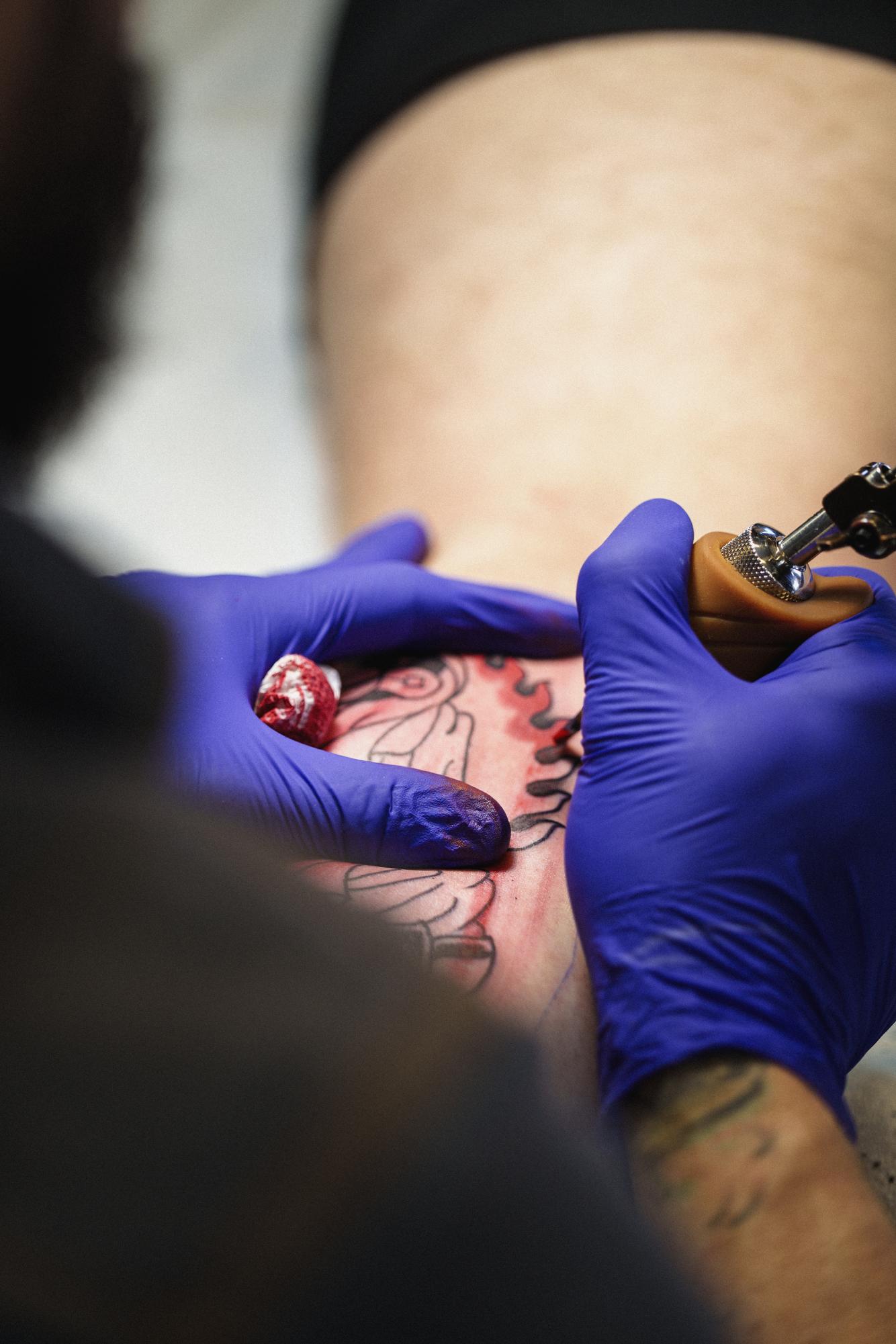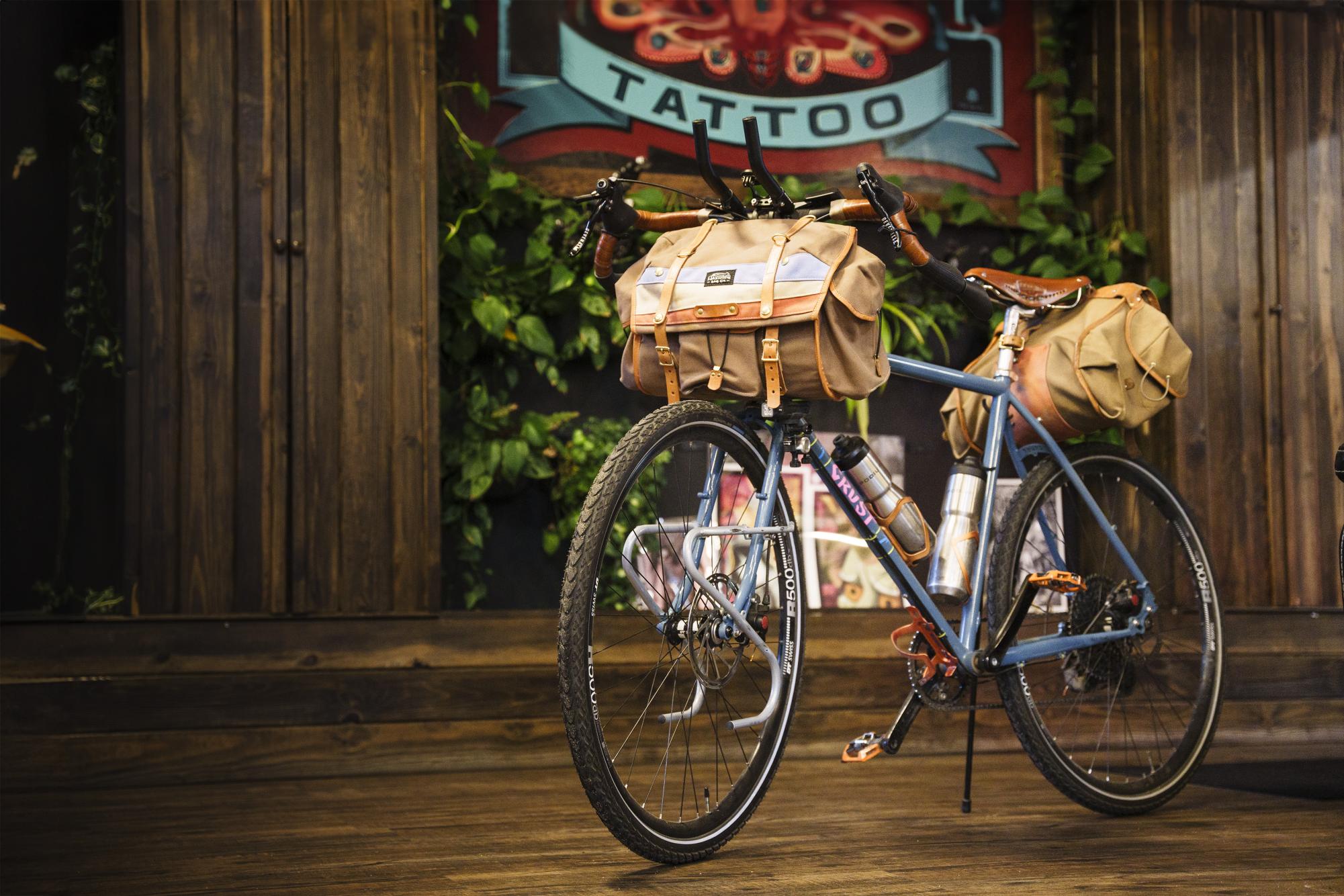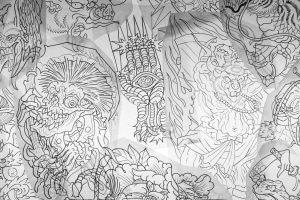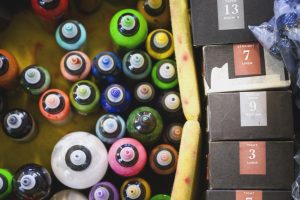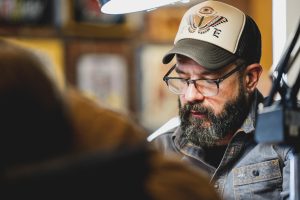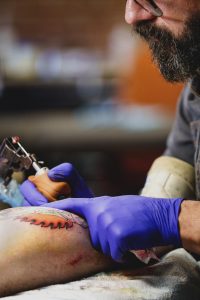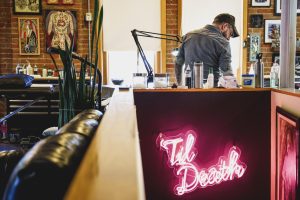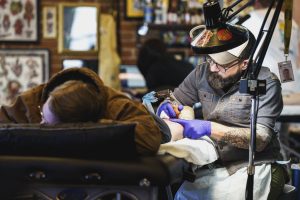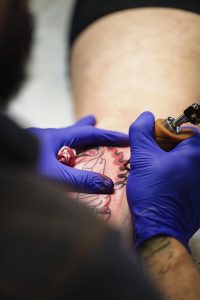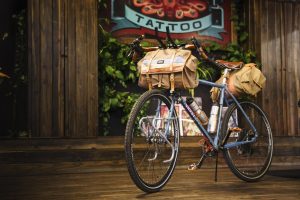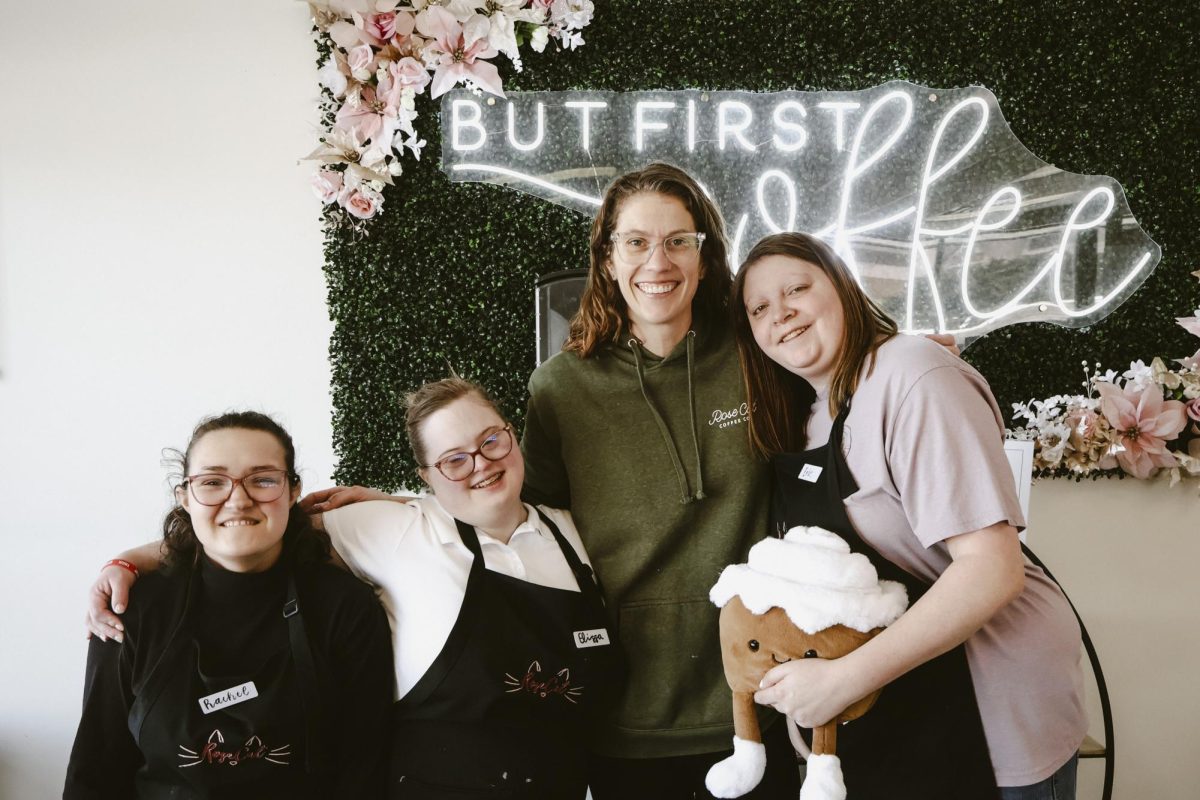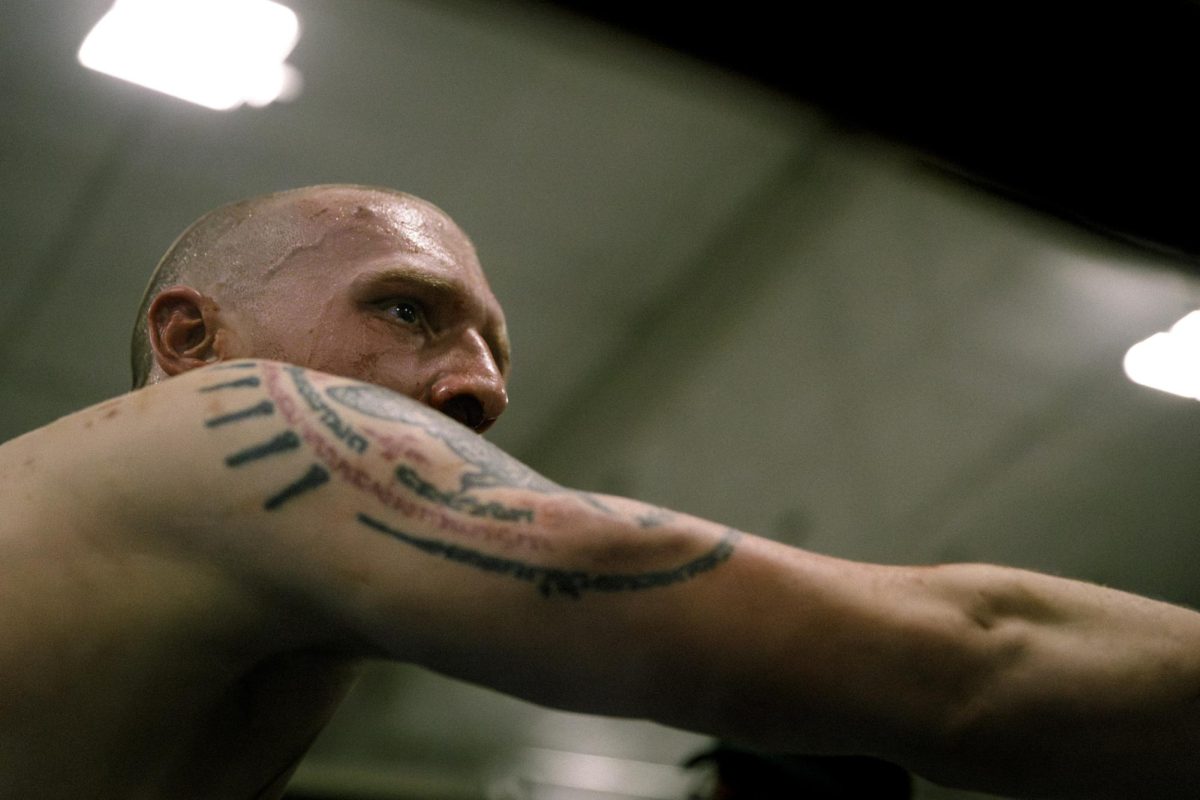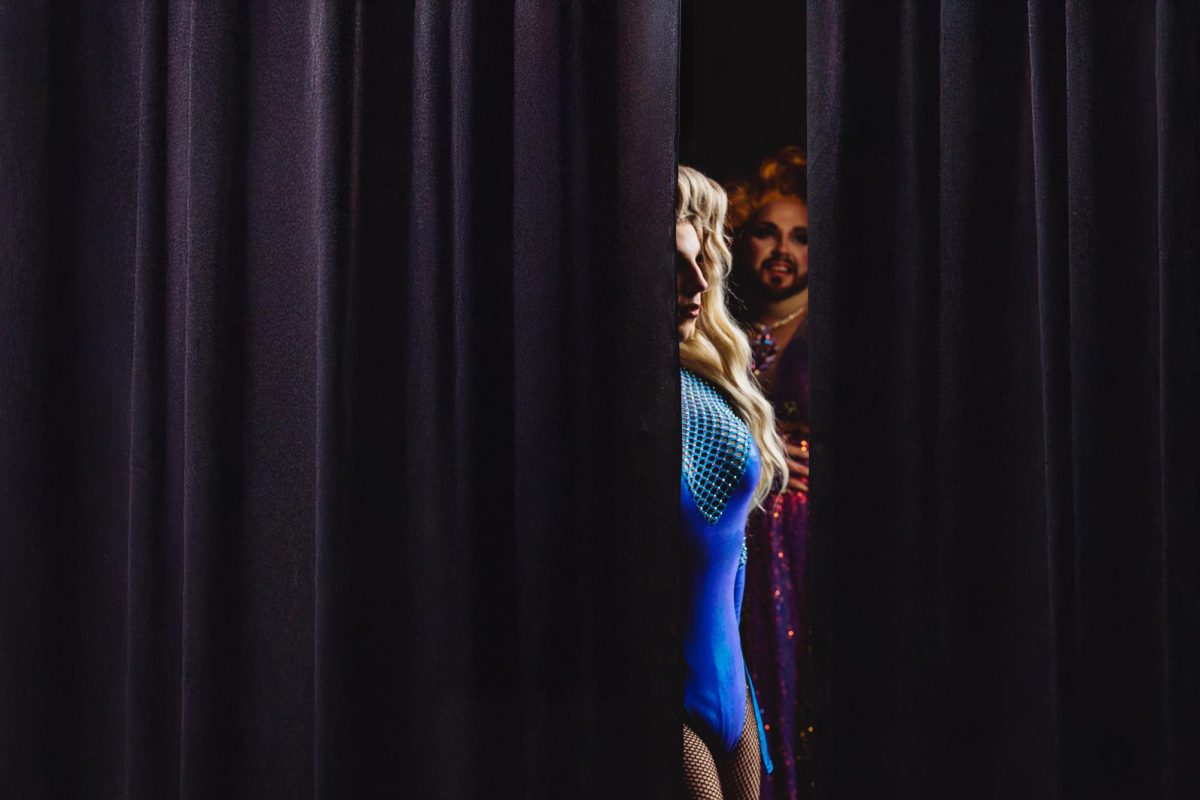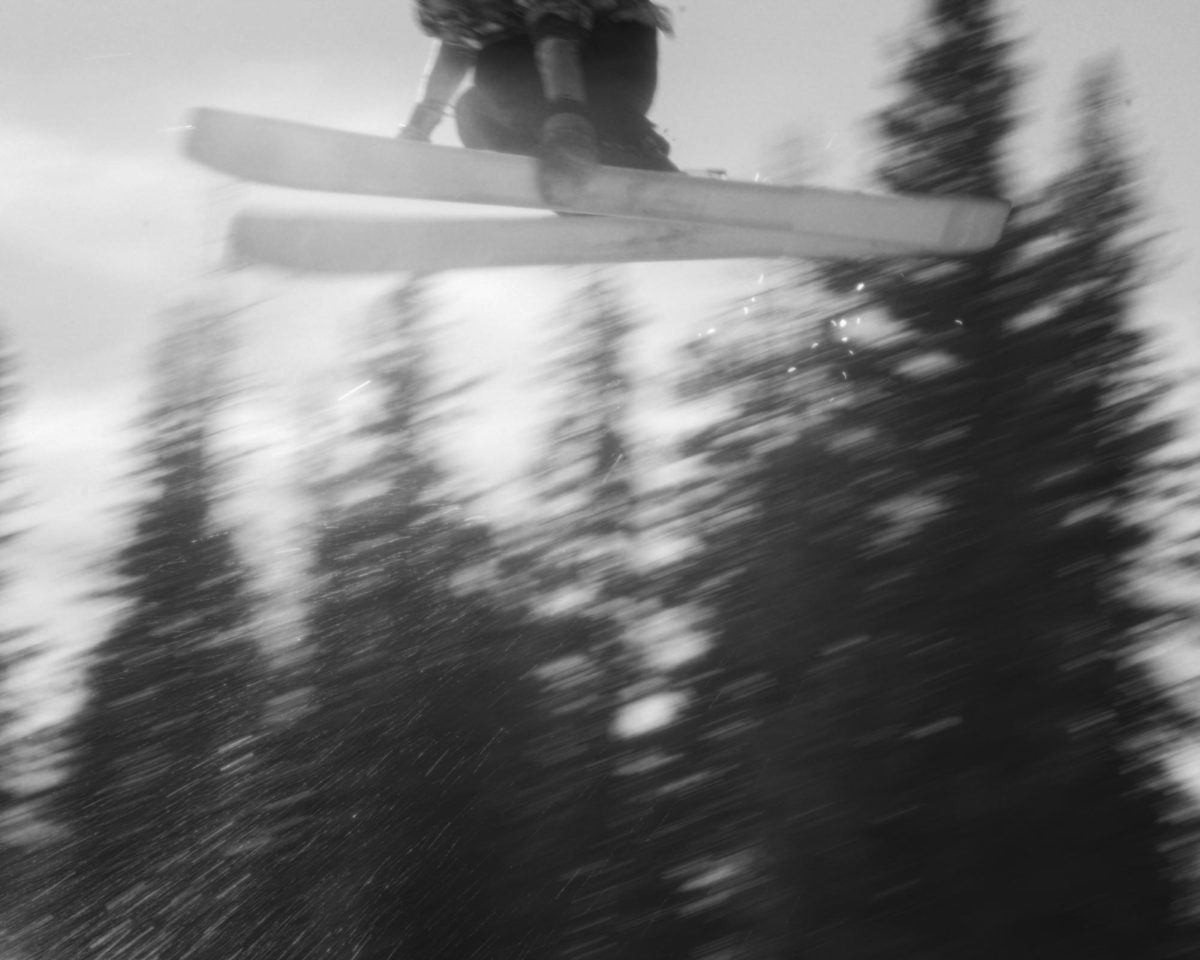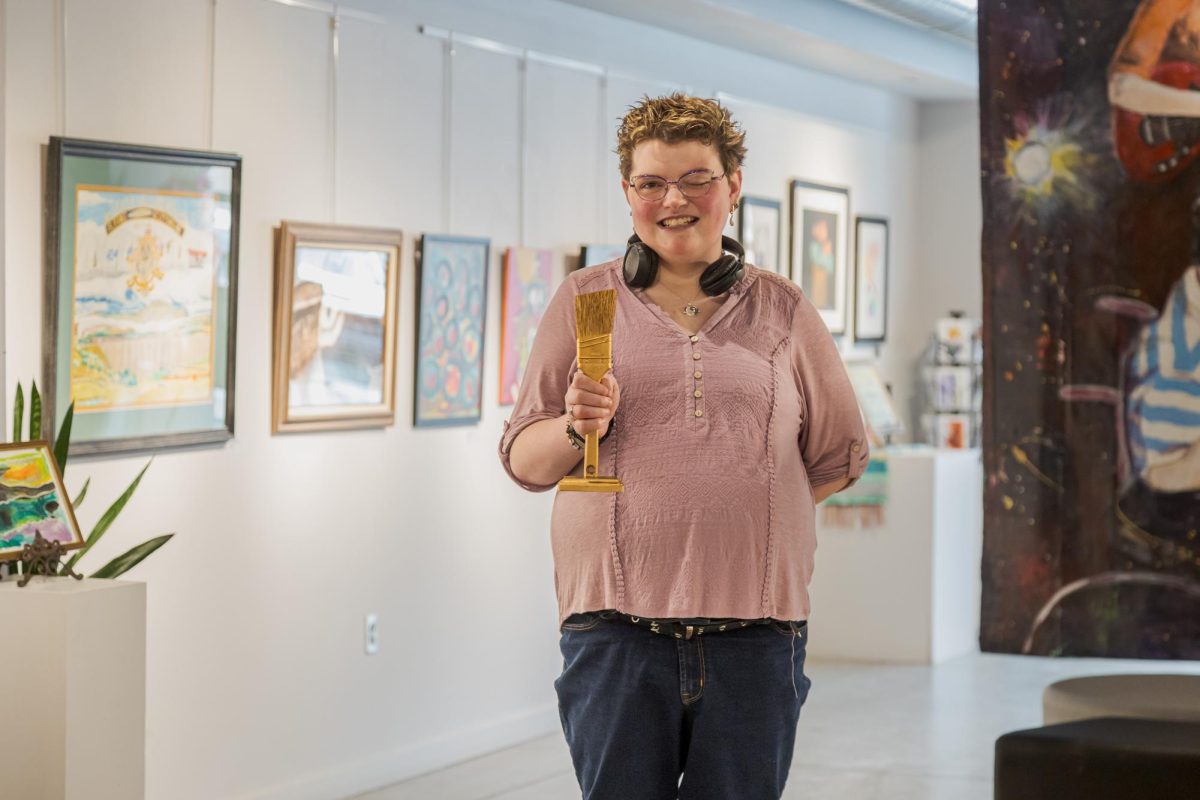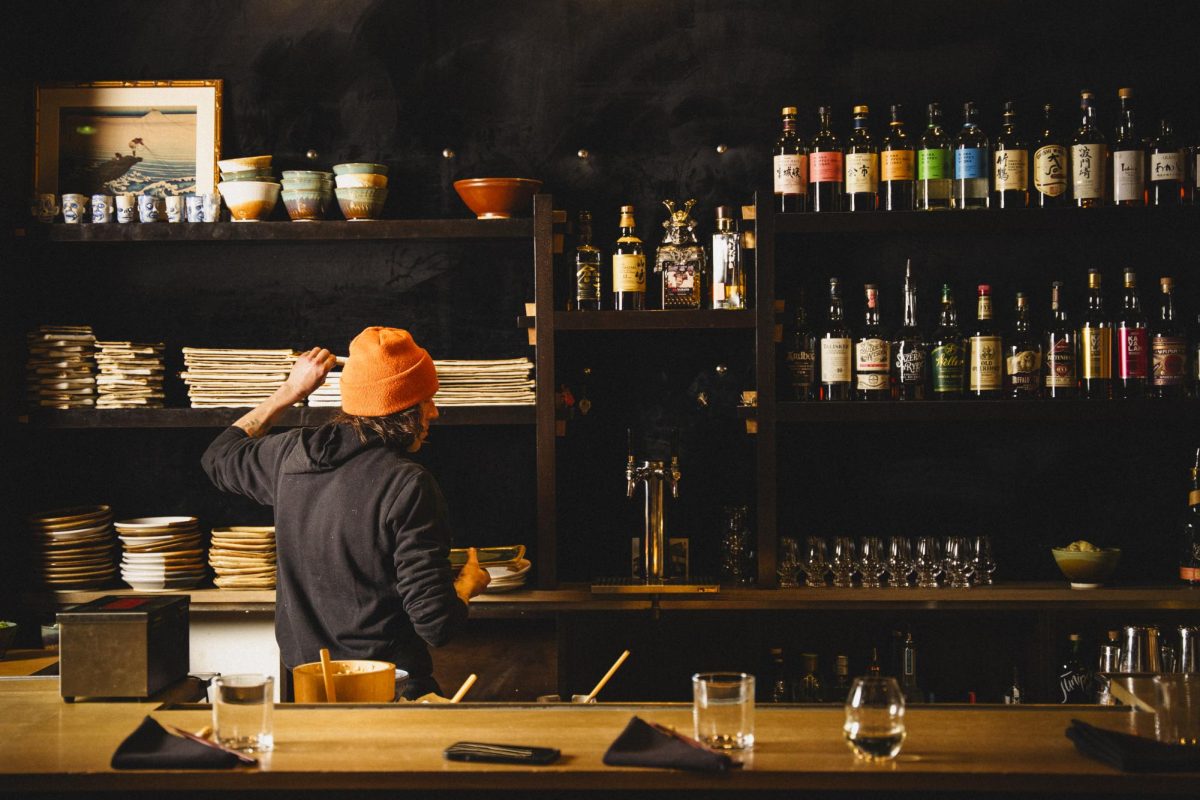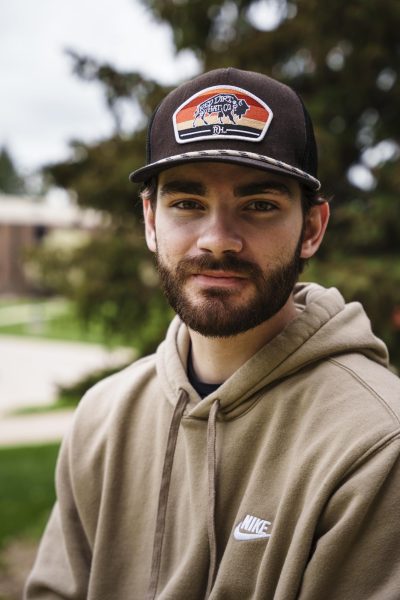“When you’re going days without any contact, you break a little bit. It’s a mental game when you’re dealing with shitty weather and nothing’s going right. It tests you in a way that there’s nothing to do but just get through it. In the end, I feel like it shows you what you can persist through.”
Bob Lackner, also known as Bicycle Bob, has lived his life to the fullest – combining two of his greatest passions to create not only a successful career as an artist, but a fulfilling and adventure-ridden life.
Born and raised in Long Island, New York, Lackner always had a proclivity for art. Growing up, he never tired of his artistic hobbies – they simply made him happy, and that was enough.
“I always kept myself busy with artwork and drawing, even at a young age,” Lackner said. “I feel like if my parents wanted to keep me content and quiet, they would just give me paper, pencils and crayons and just let me do my own thing.”
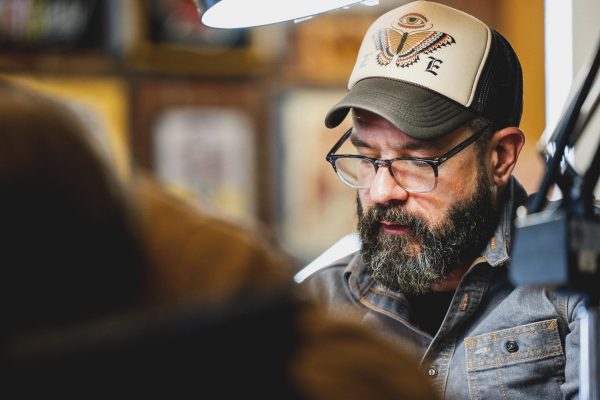 As he grew older, Lackner’s strong sense of adventure and even stronger rebelliousness drove him to a hangout spot few parents want their child to frequent.
As he grew older, Lackner’s strong sense of adventure and even stronger rebelliousness drove him to a hangout spot few parents want their child to frequent.
“I grew up around the corner from a tattoo shop on Long Island that was pretty well known at the time,” Lackner said.
Peter Tat-2, established in 1969, was the epitome of the stereotypical biker gang scene, much like many other tattoo parlors at the time. In the 1980s, a tattoo was a mark for rebels, counter-culture enthusiasts and nonconformists.
“That’s what kind of sparked my interest in what tattooing was and the whole culture of it,” Lackner said.
Lackner found himself drawn to the shop and everything it stood for. He would often sneak inside just to catch a glimpse of the artists working away on various pieces, each one as unique as both the artist and the recipient.
“Those guys that worked there were pretty cool,” Lackner said. “Sometimes they would let us come in and they would put stencils on us. They would also check out my artwork, and they were very supportive of it. But it was definitely not a place for kids to be hanging out, so after about five to ten minutes, they would tell us to kick rocks and hit the road.”
As Lackner grew up, his interest in the tattoo community dimmed slightly. By the time he graduated from high school, the idea of becoming a tattoo artist was a distant thought and he found himself with little direction in life. His main hobbies included smoking weed and keeping his nose buried in his sketchbook.
“My parents were definitely not stoked when I became a tattoo artist, but, in a weird twist, it was kind of my mom’s idea for me to get my first tattooing job,” Lackner said. “So I got into tattooing in a kind of unusual way.”
He had next to nothing going on in his life. Though he was enrolled in school locally, Lackner had no plan, no goals and no idea of what he was going to do with his life.
“I was going to night school and college, but really I was just wasting time,” Lackner said. “I would get a job for a couple of months, save up some money, and then quit and just hang out on the couch and do nothing. I was kind of a bum.”
During these stints of unemployment and stagnation, Lackner’s mother would venture out into the job market, looking for something to revive her couch-ridden son. From flipping burgers to pharmacy work, anything was on the table so long as it came with a paycheck.
“That same tattoo shop I used to visit as a kid was looking for an apprentice, and my mom kind of mentioned it to me as a part-time ‘just get off the couch and do something with yourself’ sort of deal,” Lackner said.
Intrigued by the idea, Lackner entertained his mother’s idea. However, he held some reservations about just what he was getting himself into.
“I didn’t think tattooing would be feasible,” Lackner said. “The pressure of doing something permanent on somebody else was too great, and I didn’t think I would want anything to do with that. But my mom planted this little seed. The next thing I knew, I was in the shop showing my drawings, and I ended up getting an apprenticeship.”
What initially began as a mother’s desperate attempt to get her idle son out of the house turned into not only a full-time job, but the first step into a whole new life for Lackner.
After earning an apprenticeship with the Peter Tat-2 Association in 1997, Lackner began working under Erik Desmond, a renowned tattoo artist and owner of his own shop, Loyalty Tattoo, in Babylon, New York. Shortly after that, Lackner was promoted to a full-time tattoo artist.
“My parents weren’t the most stoked,” Lackner said. “It was the late nineties, so tattooing still hadn’t blown up yet. But once I started to get on my feet, and get my own apartment and start paying my own bills through tattooing, I think it changed their outlook on my career.”
Despite this newfound respect from his parents, the general public still found Lackner’s chosen career unsavory.
“When I started tattooing, tattoo artists were on the outskirts of society,” Lackner said. “It was still a cool profession, but it wasn’t as accepted as it is today. You kind of had to not care what other people thought. I think with modern-day tattooing, shops just have nicer, more creative environments. There was good tattooing back then, but it was more on the tradesman aspect.”
Around the early 2000s, the tattoo industry began to take a turn toward the more artistic side. New tattoo artists began to enter shops with art degrees and different ideas that began to change the tattoo community as well as society’s views on the rebellious medium.
“The part of me that was attracted to the rebelliousness of tattooing back then definitely misses the old culture,” Lackner said. “But I think tattooing has grown in a really positive direction. There are a lot more shops and a lot more people getting tattoos, so it worked out.”
Once his stint working for Desmond concluded, Lackner began taking what are commonly known as guest spots. Essentially, he became an independent contractor and would move from shop to shop for brief periods of time to fill empty slots or help out if a shop got too busy.
For a while, Lackner remained local, taking guest spots in tattoo shops nearby. However, his trips soon became far more extensive.
“My first big trip was to go out to Hawaii to help a friend-of-a-friend,” Lackner said. “I went out to Maui for a month just to do tattoos. That’s what really started my interest in travelling.”
Infected with the travel bug, Lackner began travelling all over the world to work at various tattoo shops and parlors.
Some of his more notable destinations include Argentina, Canada, Australia, New Zealand and China.
Although his various adventures and the global demand for his talent are impressive to many within the tattoo community, they are not what earned Lackner the nickname Bicycle Bob.
“When I was in my late twenties and still living in New York, I was dating this girl and she told me once how her uncle had ridden a bicycle across America in the eighties,” Lackner said. “I’d never heard of anybody doing that and it kind of blew my mind. Within ten seconds I was like, ‘Well fuck, that just went on my bucket list.’ Since then the idea had always stuck with me.”
Time passed, and his 30th birthday came and went. Lackner had yet to traverse the country on a bike.
“I moved out to Colorado in 2006, and I was living down in Durango,” Lackner said. “When I turned thirty, I started running my mouth that I was going to ride a bicycle across America for my fortieth birthday. I didn’t even own a bicycle.”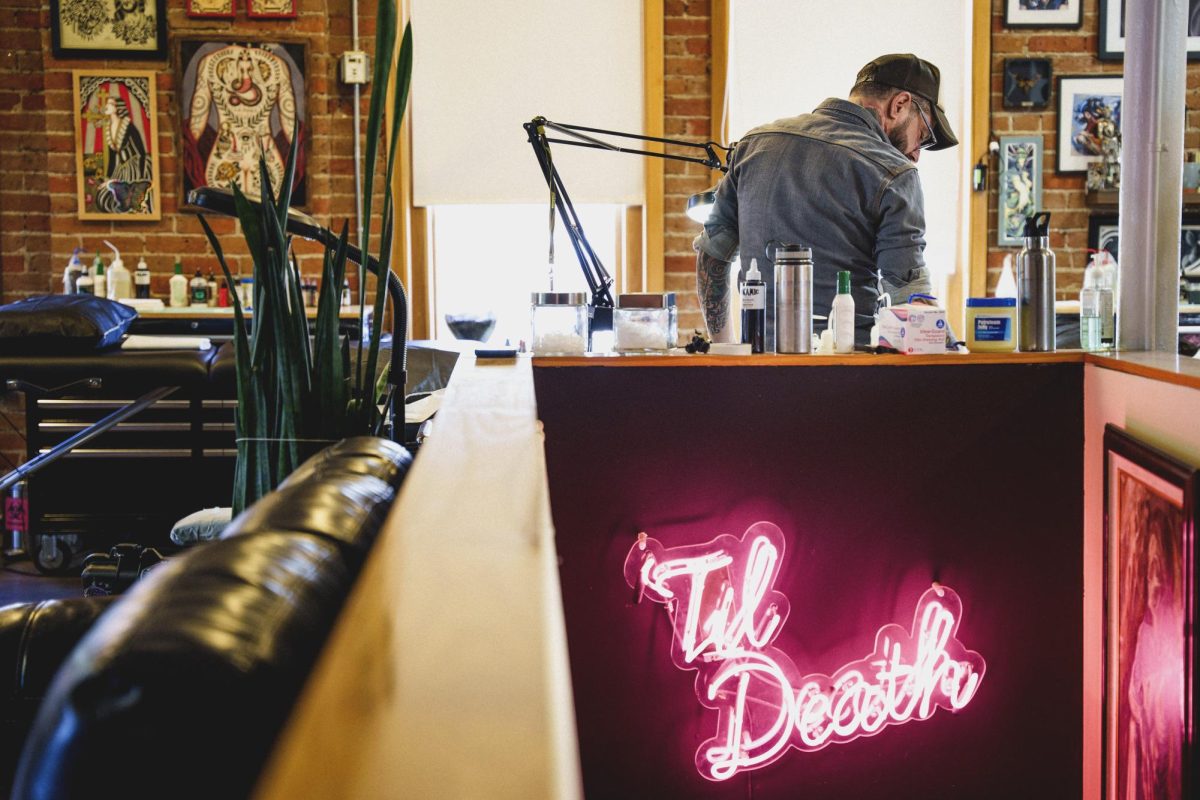
Although Lackner had little to no experience on a bicycle – let alone any sort of background in sports or athletics – the overall outdoorsy lifestyle of the area began to grow on him. Soon, Lackner found himself taking the new lifestyle for a test ride.
“When I was closer to my mid-thirties, I started getting into some road biking stuff,” Lackner said. “I got addicted to it pretty quick, and, within the first month, I found myself pushing hundred-mile rides. I loved going out every morning and the freedom of being able to explore on a bicycle. It felt like being a kid again.”
Rejuvenated by his new hobby, Lackner kept peddling, mile after mile, never losing focus on that one bucket list item conceived in his home city.
As the four-decade mark on his life arrived, Lackner put his money where his mouth was.
“As I turned forty, I had no idea what I was doing,” Lackner said. “I just bought a touring bike, shipped it out to San Francisco and flew out there. I woke up one morning, and it was just time to go to New York.”
Lackner set off on his nearly 4,000-mile voyage with no thoughts on his mind other than to reach point B. But, as the days passed and the miles faded, he began exploring within himself during the countless hours of solitude.
“At the time, I was a little burnt out on tattooing, and I was questioning if I still wanted to be a part of it,” Lackner said. “I guess what I was going through could be considered a midlife crisis. I didn’t know what my relationship or my future in tattooing looked like. I felt like I was missing out on other aspects of life because I was so dedicated to my career, and I felt like that trip was my one chance to step back from it and think about if I wanted to tattoo anymore or not.”
For the majority of his 45-day journey, Lackner felt confident he had dedicated enough of his life to the art of tattooing, and when he reached New York, he would find something new.
“I was riding on such a high of not knowing what was over the horizon every day, and I was convinced that I was going to quit tattooing,” Lackner said. “I was going to sell off everything I own and just ride around the country on my bicycle. I was willing to dumpster dive if it came to it.”
However, as he approached the finish line, Lackner was unable to quiet his mind.
He grew uneasy with his commitment to a life of cycling and dumpster diving.
“Probably on the last third of that trip, I came to terms with just how much tattooing means to me, and that, if I quit, I would be devastated,” Lackner said. “I realized I just need to find a balance. I didn’t have to be so all or nothing.”
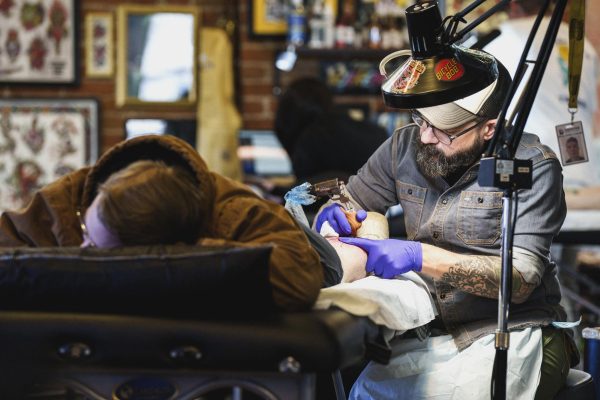 After completing one of the most important rides of his life and finally checking it off his bucket list, Lackner returned to his home in Durango with renewed faith in his career and a new outlook on life – an outlook that would change him forever.
After completing one of the most important rides of his life and finally checking it off his bucket list, Lackner returned to his home in Durango with renewed faith in his career and a new outlook on life – an outlook that would change him forever.
“It hit me pretty quick,” Lackner said. “I’ve tattooed around the country, and I’ve ridden a bike across the country – I should just combine the two.”
And so Lackner did in fact start selling off everything he owned, which took nearly a year. Once he was ready, he packed his supplies, hopped on his bike and left town.
“I just started going around the country with the intent of visiting all fifty states, and I just started tattooing along the way,” Lackner said.
Over the three years Lackner spent on the road, he visited 34 states, travelled around 18,000 miles and gained so much traction as the cycling, tattooing hobo he became famous throughout the tattooing community as Bicycle Bob.
In 2019, after around 1,000 days of living on his bike, Lackner decided it was a good time for a little break from both the bike and the ink.
“I went to Southeast Asia from December 2019 to March 2020, and I was just backpacking,” Lackner said. “I wasn’t tattooing and I wasn’t doing bicycle stuff, I was just resting and regrouping.”
After a few months of rest and relaxation, Lackner returned to the States, ready to pick up where he left off with his tattoo tour.
“I had twelve cities lined up over the course of fourteen weeks for that spring,” Lackner said. “I flew into New York, and I actually left within a few days of that huge outbreak in New York City.”
Almost immediately, Lackner’s plans to continue his work as Bicycle Bob disappeared under the shadow of the COVID-19 pandemic, and he was forced to try to outrun citywide lockdowns in an attempt to keep his career afloat.
“I was tattooing in Maryland when I started hearing whispers of the lockdowns,” Lackner said. “I didn’t know what I was going to do. I couldn’t go back to New York because some of the shops I had lined up were already shutting down. Luckily, I had some tattoo friends in Kentucky who let me come stay with them for a while.”
As the worst of the pandemic began to pass and shops and parlors began to reopen, Lackner intended to get back on his bike and get back on track. However, with the COVID-19 fear still looming over highly populated areas, he felt that the time might not be right to start popping into shops and asking for work.
“I ended up going back to Durango for a year,” Lackner said. “But I had this feeling that I had already been there and done that.”
During that time, Lackner struggled with readjusting to a more stationary lifestyle. He missed the freedom of being on the road.
“It was a trip,” Lackner said. “In three years on the road, I didn’t spend more than five or six days in one spot. Then I was forced to stop because of COVID, and I went through this crazy stagnant feeling. I had only been back in Durango for around a month.”
Desperate for a solution to his emotional turmoil, he reached out to a friend of his – a fellow tattoo artist – who lived a very similar lifestyle in the hope that he could provide some insight into what Lackner was feeling.
“Dave spent three years on the road himself,” Lackner said. “He put all his stuff in storage and he tattooed all through America and over in Europe before he ended up back in Denver. I called him to get his advice about what I was going through, and he knew exactly what I was talking about. He told me if I needed to get out of town, I could come up to Denver and visit.”
Lackner started travelling to Denver for periods of time to do guest spots and spend time with his friend at Til Death Tattoo.
“I was known to come through Denver on a regular basis to tattoo, and I’ve always been busy here,” Lackner said. “Eventually, it just made more sense for me to move up here. I have a lot of clients that travel and fly in to get tattoos, and Denver airport is a central hub so it’s easier for them to fly in for a quick tattoo and fly out. Denver is like a big small-town with everything a city has to offer, so it’s perfect for me.”
Lackner continues to work at Til Death and has become more adjusted to a lifestyle off the road.
“I got up to Denver, and everything started to feel a little bit normal again,” Lackner said. “It felt right, so I figured I would nest here for a while, and now I have an apartment with cool stuff, a bed and daily showers. I feel like I’m spoiled.”
Although Lackner has given up life on the bike for the time being, he still plans to travel, continue to meet other artists and experience new things.
“I think this year I’m going to focus on hitting the road and working with a lot more artists that I’ve looked up to over the years,” Lackner said. “As much as I like Denver, if there’s a situation where I can get creative inspiration and work alongside people that I’m going to grow with, I’ll always be open to it. But, for now, I really like being in Denver. I’ll never say never, though, maybe one of these days I might get back on the bicycle.”

